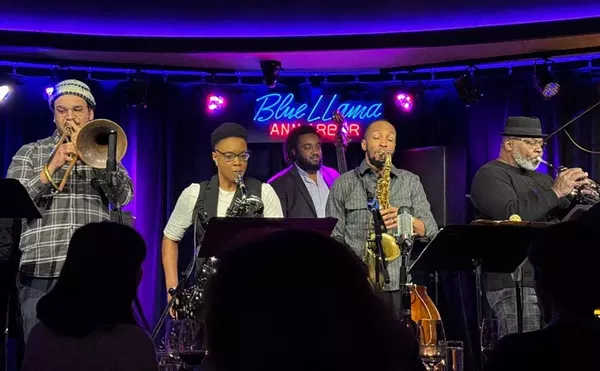When I first heard Bob Dylan’s extraordinary new album Love and Theft, I remembered something a friend once said: “Dylan is the greatest white blues singer who ever lived.” This friend is a serious music critic. So I thought carefully before responding.
“You might be right,” I replied, “But he’s much more than that.” I offered up Dylan’s formidable achievements as a songwriter, rock auteur and modern folk-music pioneer.
A blues singer? Sure, I said. But isn’t that selling the man a bit short?
Love And Theft has me rethinking my position.
Dylan’s latest release is an astonishing blues album … a masterful blend of rural Southern melodies and more up-tempo urban sounds. But this isn’t the accomplished artist taking a stylistic detour (like Ray Charles’ ‘60s classic Modern Sounds in Country And Western Music). Rather, Dylan reconstitutes his roots into a career-capping confession.
“The future for me is already a thing of the past,” the aging Dylan admits over Hammond organ gurgles on “Bye and Bye,” “You were my first love and you will be my last.” In other words, forget those old protest songs. Dylan’s got the blues. Maybe he’s always had ‘em.
Yet Love And Theft is also the most overtly joyous Dylan album since 1969’s Nashville Skyline. It’s a punchy and energetic affair, equal parts grizzle and misspent youth. “I’m going to the country, going to retire,” Dylan croons on the opening track, “Taking a streetcar named desire.”
Dylan’s other gifts still twinkle and shine. There’s the clever turns of phrase (“You’re going to need my help sweetheart, you can’t make love all by yourself”). The unearthly vocal growl (particularly on “Honest With Me”). And, yes, even the occasional political nod (“I’m going to teach peace to the conquered, I’m going to tame the proud”).
But mostly, Dylan’s in a partying mood — eager to celebrate the musical forms that inspire him. Several of the tracks have a crank-the-radio quality that he hasn’t mustered since the ‘60s. “Everybody get ready to lift up your glasses and sing!” he shouts on “Summer Days.” The language of the blues is versatile. It can convey happiness too.
The centerpiece of the album is the rollicking, banjo-inflected “High Water (for Charley Patton).” Dylan dedicates the song to Patton, the first great Delta blues singer. Patton was a cocky rambler who traveled relentlessly and flirted with religion. Some say he was the first true rock and roller. Certainly he was Dylan’s archetype.
Patton lived barely 43 years, and never saw the music he pioneered gain widespread popularity. But the 60-year-old Dylan just keeps going, singing the blues and getting better with age. “The girls all say you’re a worn-out star,” offers Dylan on “Summer Days,” “(But) my pockets are loaded and I’m spending every dime.”
Here’s hoping Bob’s got a nice, fat roll in his wallet. And plenty of time left to spend it.
E-mail Adam Druckman at [email protected].






